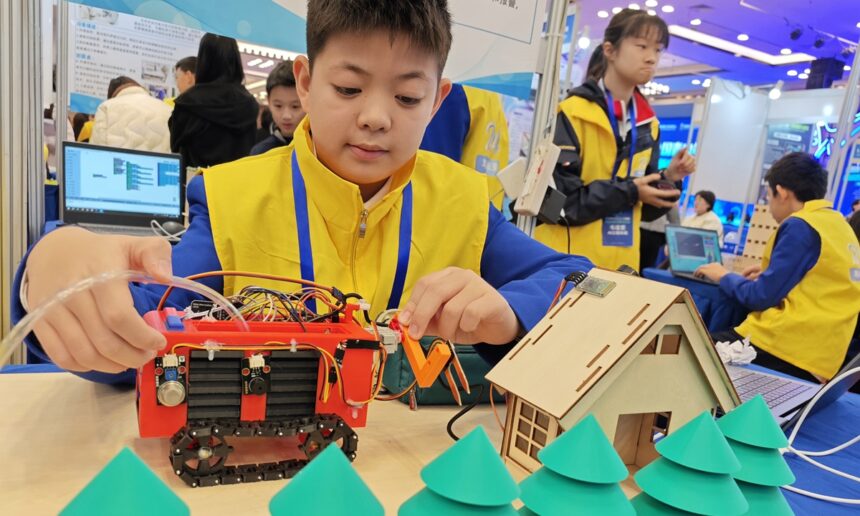By Global Times
The Chinese Ministry of Education has issued a notice to strengthen AI education in primary and secondary schools. The notice specifies that younger primary school children should focus on exploring and experiencing AI technology, while older primary school children and middle school students should concentrate on understanding and applying AI concepts, and high school students should engage in project creation and advanced applications.
The notice has outlined the overall requirements for enhancing AI education in schools, placing a strong emphasis on moral education and the cultivation of innovative talent. They underscore the importance of a people-centered approach, fostering students’ critical thinking and innovative spirit.
Additionally, the focus is on sparking interest and nurturing scientific curiosity alongside digital literacy. Coordinated planning is encouraged to promote exploration and pilot programs across schools and regions.
The notice calls for establishing a systematic curriculum with regular teaching and evaluation practices. It defines distinct learning objectives for each educational stage: sensory and experiential learning in early primary grades, understanding and application in upper primary and middle school, and project creation and advanced applications at the high school level.
Schools are encouraged to integrate AI education into after-school programs and research initiatives, fostering collaboration between industry, academia, research, and application. Efforts include developing tailored courses and teaching cases while seamlessly incorporating AI into information technology, science, and practical activity curricula.
To enhance resource accessibility, an AI education section will be introduced on the national smart education platform, consolidating high-quality resources for widespread use. Plans include establishing AI education bases in stages, opening facilities such as laboratories and exhibition halls from universities and tech enterprises to students, optimizing digital teaching environments, and promoting inter-school resource sharing for comprehensive learning experiences.
It also calls for balancing the allocation of AI laboratory resources, upgrading existing digital teaching environments, and strengthening inter-school resource sharing to provide spaces for students to experience, learn, explore, and practice AI.
The notice also emphasizes prioritizing teacher training by integrating AI education into national development plans to enhance professional capabilities. Regions and schools with adequate resources are urged to expand AI teaching staff and recruit experts from academic and industrial sectors as part-time instructors.
Bridging the gap between urban and rural areas is a key focus of the notice, which calls for increased support for schools in rural and remote regions. It further highlights the need for teacher mobility and the use of online platforms to link AI education courses across different areas. The notice also encourages collaborative efforts between urban and rural schools, emphasizing the sharing of teaching experiences and collective efforts to enhance the overall quality of AI education.













